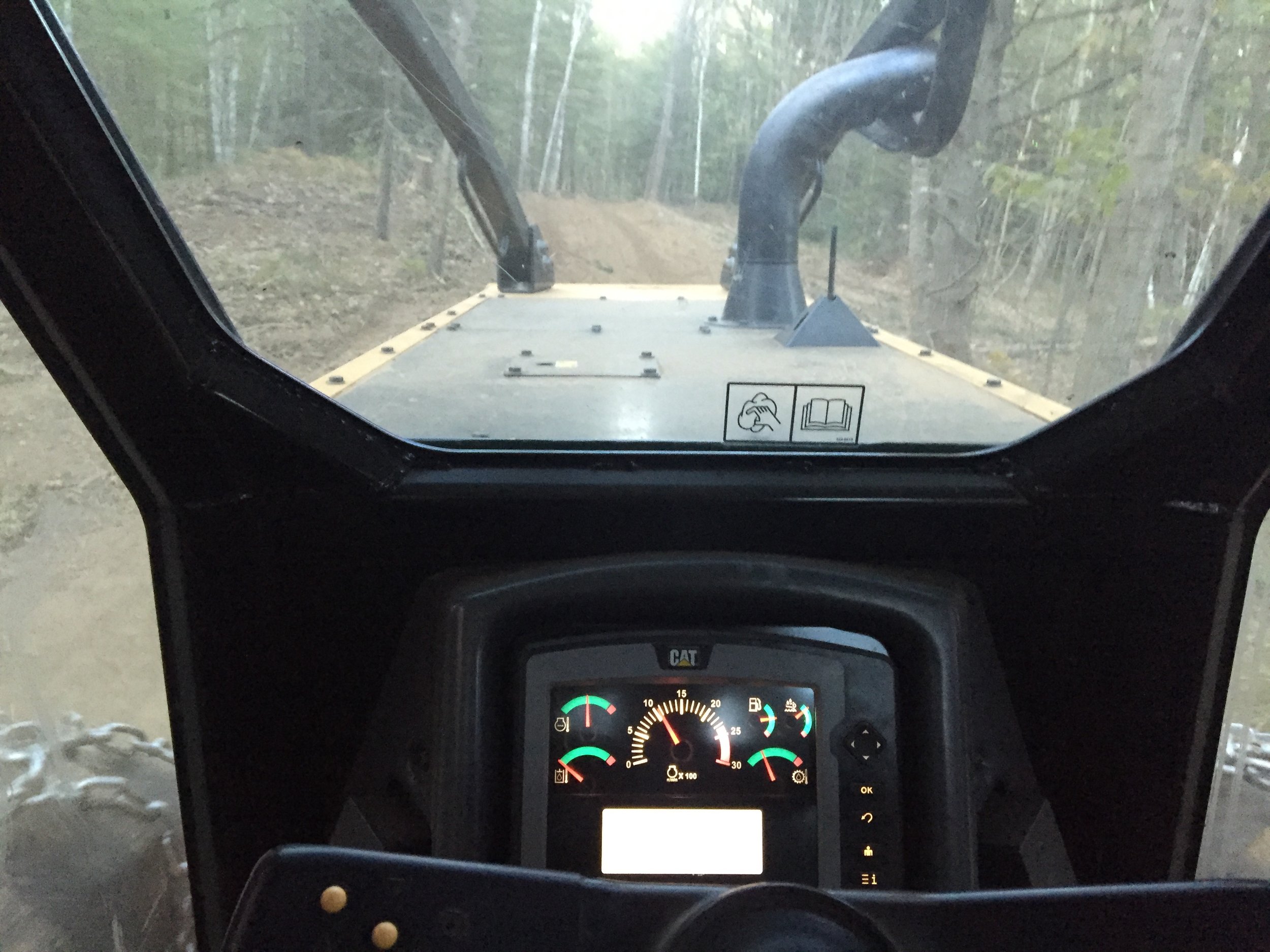10 Things we do to Protect Your Woodlot
Notice the entry way is higher than the main road.
Observing a wood harvest operation looks, to the majority of people, like a methodical, mindless series of cutting a tree, making a pile of felled trees, dragging said pile to the landing, and loading a truck. If you really get the opportunity to watch what we do, you will see there are a lot of steps we take in order to protect a landowners property. Here I have compiled a list of 10 things we do or consider on each and every job in order to protect your land.






Soil Conditions: We make decisions on when to harvest your timber based on several factors, but one of the most important factors is the soil condition. Sandy gravel and rocky ground can be harvested almost any time of year, while glacial till ground or clay needs to be very dry or completely frozen.
Road Building: The entry way into the woodlot landing is a crucial part of the operation. A lot of damage can happen here if the road is not properly created due to heavy trucks passing. When setting up the operation, we build up the road with gravel or wood chips depending on what it needs. This also helps prevent us from dragging mud into the public roadway. We ensure proper drainage along the road or entry way with ditches or culverts as necessary. We also safeguard the main road from damage by building up the woods road to be higher than the main road which helps prevent our trucks from breaking the pavement.
Feller Buncher/Skid Trails: Skidder trails must be created with the least amount of impact on the soil. We first try to use any existing roads on the property and if new ones need to be created, we carefully plan them out to avoid wet areas and prevent erosion. The key here is to have a plan. Damage can occur to both the ground and the staging timber during the skidding of trees. To prevent erosion on the ground, we avoid creating long straight skid trails and instead implement small bends and turns. We also bridge dry stream channels if needed. If the skidder needs to operate on sloped terrain, we implement water bars which are small ditches at a slight angle. These water bars help disperse water to the sides of the skidder trail. To protect the standing timber, we identify low value trees to use as “bumpers” or we will add slash around the base of the tree.
Landings: The landing is the hub of the harvesting operation. It is also the most traveled upon and most publicly seen area of the job site. The landing can be particularly prone to erosion because of the increased traffic and lack of vegetation. That is why we take care to thoughtfully select a landing site that is as far away from water as possible and is on solid well draining soil.
Weather: I might not be Joe Cupo, but I certainly monitor the weather as much as he does. If the weather does not permit, we do not operate. Operating in heavy rains has the opportunity to do irreversible damage to the ground and cause significant run off and soil erosion.
Bridges: Temporary bridges are used over stream crossings. We also make sure to not fell tree tops into streams which would cause them to clog.
Hazardous materials: We take special care to ensure we don’t leave chemicals on the ground. It is expected that hoses will break and leaks will happen but we meticulously care for and maintain our equipment to keep these occurrences to a minimum. We are also fully prepared and educated on how to properly clean up any spills that do occur.
Education & Training: Kimball & Sons Logging owners and employees attend annual training events to stay abreast of innovative technologies and techniques that will decrease any negative impacts of forest harvesting operations. We are also involved in organizations such as the PLC and Master Logger that provide continuing education. Additionally, we read read read to keep learning!
Insurance: You will feel confident knowing that we run a fully insured business including workers comp on all of our employees.
EXPERIENCE! Probably the absolute most important factor in protecting your woodlot is having experienced people at the helm of the equipment. Our feller buncher operator (AKA my father, Ron) has been logging since the 80’s. My brother who runs the skidder and I have never known a life without logging. We possess the necessary skills and experience to maintain your land so future generations can continue to benefit from the wonderful resources found in our forest products industry.
Bridging over a stream

